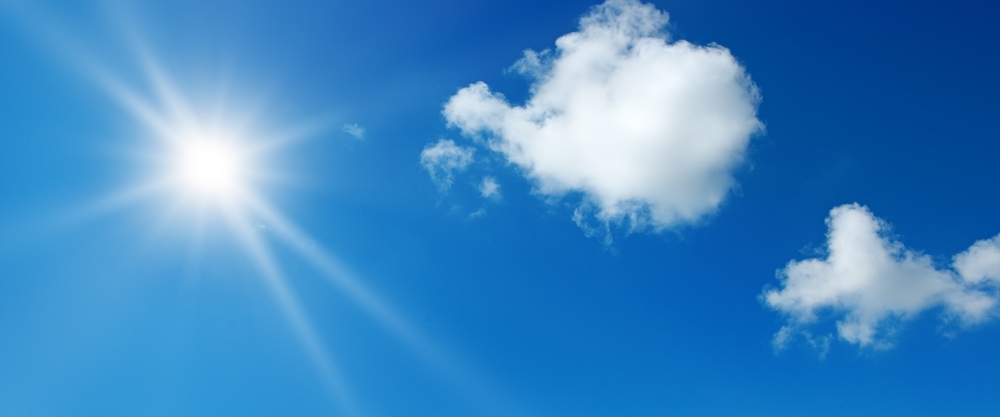When Cannot We Pray before Zuhr?
Hanafi Fiqh
Answered by Ustadh Sufyan Qufi
Question
Could you explain the difference between zawal and istiwa’? And please clarify the exact time around midday in which we are not allowed to pray and how long does it last?
Answer
In the name of Allah, Most Compassionate, Most Merciful,
I pray this finds you in the best of states.
There are three times in the day when one is forbidden to offer any prayers, even make-up prayers which are actually considered invalid if offered at these times. These times are when the sun rises up until it is above the horizon by the length of a spear (about twenty minutes after sunrise), when the sun is at its zenith and when the sun turns dull in radiance such that one can look at it until it sets (about twenty minutes to half an hour before sunset).
The sun is at its zenith when the shadow stops shortening and has not started lengthening. This is roughly 7-10 minutes before zuhr. [Tahtawi, Hashiya ‘ala Maraqi al-Falah; Faraz Khan, Ascent to Felicity]
Difference between Zawal and Istiwa’
Literally, al-istiwa’ is when the sun has reached its zenith and al-zawal is when the sun just starts leaving its zenith. Practically, they are the same.
The time for “Istiwa’” of the sun is when the sun is at its zenith, i.e. when the shadow stops shortening and has not started lengthening. [Tahtawi, Hashiya ‘ala Maraqi al-Falah]
The time for “Zawal of the sun is the same as the time of the “Istiwa’”. “Zawal” in the Arabic language means moving, changing place. When Hanafi jurists mention “Zawal” of the sun what is meant is the time when the sun leaves its zenith. The expression they usually use is: “when the sun leaves the middle of the sky which is its zenith.” This is in line with the meaning linguistic meaning of “Istiwa’” which is for something to be even, equal, and straight at the time for Istiwa is when the sun is in the middle of the sky. [Maydani, Lubab; Mawsu‘at al-Fiqh al-Kuwaytiyya]
And Allah knows best.
Wassalam,
[Ustadh] Sufyan Qufi
Checked and Approved by Shaykh Faraz Rabbani
Ustadh Sufyan Qufi is an advanced seeker of knowledge, originally from Algeria, who grew up in France. He began searching far and wide for answers to the fundamental questions of life and was disappointed at the answers he found.
Then he connected with various traditional teachers and gradually connected with SeekersGuidance. He embarked on his journey of learning through the various teachers at SeekersGuidance, including his mentor Shaykh Faraz Rabbani.
He studied numerous texts in Islamic Law, Theology, Hadith, and other areas with Shaykh Faraz Rabbani and other teachers, including Shaykh Abdurrahman al-Sha‘ar, Shaykh Ali Hani, and others.
He is an active instructor at SeekersGuidance and answers questions through the SeekersGuidance Answers Service.
موسوعة الفقه الكويتية (استواء)
التَّعْرِيفُ:
1- مِنْ مَعَانِي الِاسْتِوَاءِ فِي اللُّغَةِ: الْمُمَاثَلَةُ وَالِاعْتِدَالُ.
وَقَدِ اسْتَعْمَلَهُ الْفُقَهَاءُ بِالْمَعْنَى اللُّغَوِيِّ مُطْلَقًا بِمَعْنَى الْمُمَاثَلَةِ كَمَا فِي قَوْلِهِمْ: إِذَا اسْتَوَى اثْنَانِ فِي الدَّرَجَةِ وَالْإِدْلَاءِ اسْتَوَيَا فِي الْمِيرَاثِ.
وَبِمَعْنَى الِاعْتِدَالِ كَقَوْلِهِمْ فِي الصَّلَاةِ: إِذَا رَفَعَ الْمُصَلِّي رَأْسَهُ مِنَ الرُّكُوعِ اسْتَوَى قَائِمًا.
وَاسْتَعْمَلُوهُ مُقَيَّدًا بِالْوَقْتِ فَقَالُوا: وَقْتُ الِاسْتِوَاءِ أَيِ اسْتِوَاءِ الشَّمْسِ قَاصِدِينَ وَقْتَ قِيَامِ الشَّمْسِ فِي كَبِدِ السَّمَاءِ، لِأَنَّهَا قَبْلَ ذَلِكَ مَائِلَةٌ غَيْرُ مُسْتَقِيمَةٍ.
الْحُكْمُ الْإِجْمَالِيُّ، وَمَوَاطِنُ الْبَحْثِ:
2- تُكْرَهُ صَلَاةُ النَّافِلَةِ وَقْتَ اسْتِوَاءِ الشَّمْسِ عِنْدَ الْحَنَفِيَّةِ وَالشَّافِعِيَّةِ وَالْحَنَابِلَةِ، لِمَا رَوَى عُقْبَةُ بْنُ عَامِرٍ قَالَ: «ثَلَاثُ سَاعَاتٍ كَانَ رَسُولُ اللَّهِ- صلى الله عليه وسلم- يَنْهَانَا أَنْ نُصَلِّيَ فِيهِنَّ، وَأَنْ نَقْبُرَ فِيهِنَّ مَوْتَانَا: حِينَ تَطْلُعُ الشَّمْسُ بَازِغَةً حَتَّى تَرْتَفِعَ، وَحِينَ يَقُومُ قَائِمُ الظَّهِيرَةِ حَتَّى تَمِيلَ الشَّمْسُ، وَحِينَ تُضِيفُ الشَّمْسُ لِلْغُرُوبِ حَتَّى تَغْرُبَ» وَلَا يُكْرَهُ مَا لَهُ سَبَبٌ كَسُجُودِ التِّلَاوَةِ وَصَلَاةِ الْجِنَازَةِ، وَفِي رِوَايَةٍ أُخْرَى لِلْحَنَابِلَةِ الْكَرَاهَةُ مُطْلَقًا.وَيَزِيدُ الْحَنَفِيَّةُ عَلَى ذَلِكَ النَّهْيُ عَنِ الْفَرْضِ، وَعَنْ سَجْدَةِ التِّلَاوَةِ، وَصَلَاةِ الْجِنَازَةِ فِي هَذَا الْوَقْتِ.
أَمَّا الْمَالِكِيَّةُ فَلَمْ يَرِدْ ذِكْرٌ لِمَنْعِ الصَّلَاةِ عِنْدَهُمْ فِي هَذَا الْوَقْتِ فِي الْمَشْهُورِ كَمَا قَالَ ابْنُ جُزَيٍّ.
وَلِلْفُقَهَاءِ تَفْصِيلٌ فِي ذَلِكَ يُنْظَرُ فِي أَوْقَاتِ الصَّلَوَاتِ.
